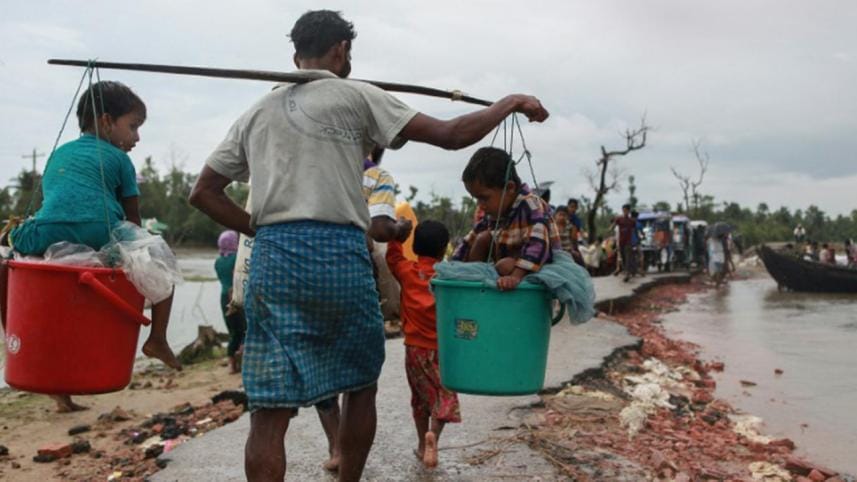Unicef to open 1,300 new schools for Rohingya children

Unicef will establish more than 1,300 new learning centres for Rohingya children who have fled Myanmar violence to Bangladesh since August 25.
Currently, UN Children's Fund run 182 learning centres in Rohingya camps and makeshift settlements in Cox's Bazar, and has enrolled 15,000 children.
"It plans to increase the number of learning centres to 1,500, to reach 200,000 children over the next year," states a press release issued today.
"It is critical that these children, who have suffered so much in this crisis should have access to education in a safe and nurturing environment," said Edouard Beigbeder, Unicef representative in Bangladesh.
The learning centres provide early education to children aged four to six, as well as non-formal basic education to children from ages six to 14. In each learning centre, there are three shifts, with each shift comprising of 35 children.
Children will be taught Bengali, English, Math, Burmese, Science, Arts and Anthems in the learning centres.
Children also receive psychosocial counselling, and are taught hygiene and life skills. The children are given books, pens, colouring pencils, school bags and other educational materials, the statement said.



 For all latest news, follow The Daily Star's Google News channel.
For all latest news, follow The Daily Star's Google News channel.
Comments